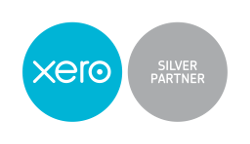Value Added Tax or VAT is a consumption tax placed on a product from production to point of sale. The amount is calculated on the cost of the product less any costs that have previously been taxed.
There are different types of VAT covering Standard, Exempt, and No VAT items, and if you miscalculate you could pay too much tax, or be overclaiming which may result in a penalty or fine.
Outsourced bookkeeping from trusted bookkeeping services in London is the best way to ensure that all of your input and output VAT calculations are handled by a qualified accountant – optimising your tax position and submitting your VAT returns online on time.
How much does an accountant charge for a VAT return? Read on…
Accountancy Fees
Depending on your tax affairs accountant prices will vary. If you’re an independent contractor of freelancer fees can be from £50 to £150 per month. For the self-employed and sole trader, these can range from £30 to £130, and limited companies can come to over £1000 per month depending on the size and complexity of the business.
Lower-priced packages can start from £79 plus VAT per month as a guide, covering all the basics such as tax liabilities and filing obligations. Business structuring, payroll, and email and phone support are also included.
For slightly larger business prices are around £149 plus VAT per month and includes VAT returns services and an annual business review.
Paying £219 plus VAT per month will offer everything that the other two options provide alongside quarterly management accounts, fees protection insurance, employment contracts, and processing payments to HMRC.
Accountant Duties
Your accountant will be in charge of your personal and company tax affairs – liaising with you regarding your particular requirements. You should expect that all of your filings are ready on time for submission to HMRC or Companies House. And you should be contacted months in advance to enable time to budget finances to make the required payments.
Your accountant should discuss with you how your expenses are allocated in order to reduce your tax bill and provide you with a VAT health check each year. Common VAT pitfalls that your accountant can help you avoid include:
- The apportion of goods or services bought for business and non-business use
- VAT on business entertainment
- Exported goods
- Trade discounts and discounts for quick payment
- Customer bad debts where VAT returns will only include monies received
Payment of Accountant Fees
Accountants will send you invoices on a monthly, quarterly, half-yearly, or annual basis. When you sign up, you’ll receive a proposal or quote detailing all services and how much each one costs. You can choose to set up a monthly direct debit payment and review it to change to cover any increases – for example, sales-based information that pushes you into a new payment band.
If your sales are less than expected and you employ fewer staff fees will be lowered to reflect this. Having professional support will limit the amount of tax you pay and maximise how much you can take out of the business.



0 Comments